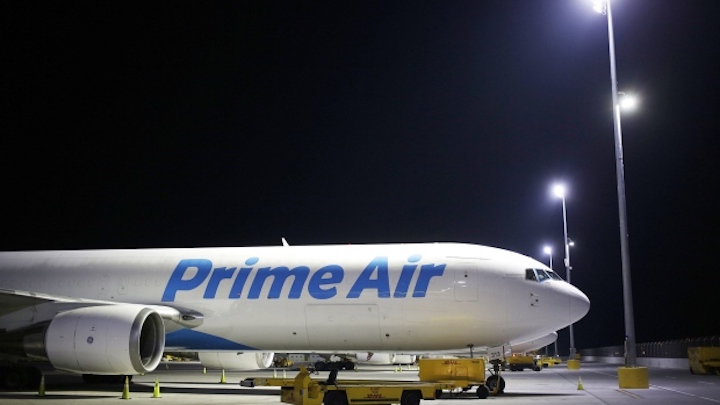Today, Amazon announced its first-ever purchase of eleven Boeing 767-300 aircraft, expanding its fleet to continue to serve customers. The purchases include seven aircraft from Delta and four aircraft from WestJet, which will join the network by 2022. Amazon Air’s fleet expansion comes at a time when customers are relying on fast, free shipping more than ever.

“Our goal is to continue delivering for customers across the U.S. in the way that they expect from Amazon, and purchasing our own aircraft is a natural next step toward that goal,” said Sarah Rhoads, Vice President of Amazon Global Air. “Having a mix of both leased and owned aircraft in our growing fleet allows us to better manage our operations, which in turn helps us to keep pace in meeting our customer promises.”
Amazon Air plays a central role in delivering for customers by transporting items across longer distances in shorter timeframes. The four aircraft purchased from WestJet in March are currently undergoing passenger to cargo conversion and will join Amazon Air’s network in 2021, and the seven aircraft from Delta will enter Amazon’s air cargo network in 2022. These fleet additions will ensure added capacity in Amazon Air’s network for years to come. The company will continue to rely on third-party carriers to operate these new aircraft.
Amazon Air continues to expand globally to meet the needs of its growing customer base, while investing in jobs and sustainable solutions to power its network. Last year, Amazon launched its first-ever air hub at Leipzig/Halle Airport in Germany and new regional air operations at Lakeland Linder International Airport, John F. Kennedy International Airport, San Francisco International Airport, Chicago O’Hare International Airport, Richmond International Airport, Austin-Bergstrom International Airport, Luis Muñoz Marín International Airport, Kahului Airport, Kona International Airport, Los Angeles International Airport and Louis Armstrong International Airport. This summer, Amazon Air announced its purchase of six million gallons of sustainable aviation fuel and has already invested in leading-edge electric ground service equipment and solar rooftop panels planned at some facilities.

Follow us on social media: